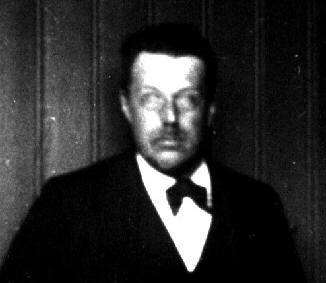Willem Abraham Wythoff (1865-1939)
number-theorist
|
Many combinatorialists and number theorists know about the Wythoff game, but few know anything about the man for whom this subject is named.
W. A. Wythoff (in Dutch: Wijthoff) was born in Amsterdam in 1865, the son of an operator of a sugar refinery. He received a Ph.D. in mathematics from the University of Amsterdam in 1898. From 1899 to 1929, Dr. Wythoff was a collaborator of Revue Semestrielle des Publications Mathématiques, a forerunner of Mathematical Reviews. The Wythoff game originates in
W. A. Wythoff, "A modification of the game of nim," Nieuw Archief voor wiskunde 2 (1905-07) 199-202.
|

|
In Dr. Wythoff's own words: "The game is played by two persons. Two piles of counters are placed on a table, the number of each pile being arbitrary. The players play alternately and either take from one of the piles an arbitrary number of counters or from both piles an equal number. The player who takes up the last counter or counters, wins."
The solutions of the Wythoff game, involving the Fibonacci numbers, can be found in numerous articles in The Fibonacci Quarterly, and also in
H. S. M. Coxeter, "The golden section, phyllotaxis, and Wythoff's game," Scripta Mathematica 19 (1953) 135-143.
Photograph used by permission, with copyrighted notice: Stichting Indisch familie- en theearchief Van der Hucht c.s. I thank Jan Van Meurs and Dr. N. P. van den Berg for sending what little information on Wythoff could be found.
Clark Kimberling Home Page
